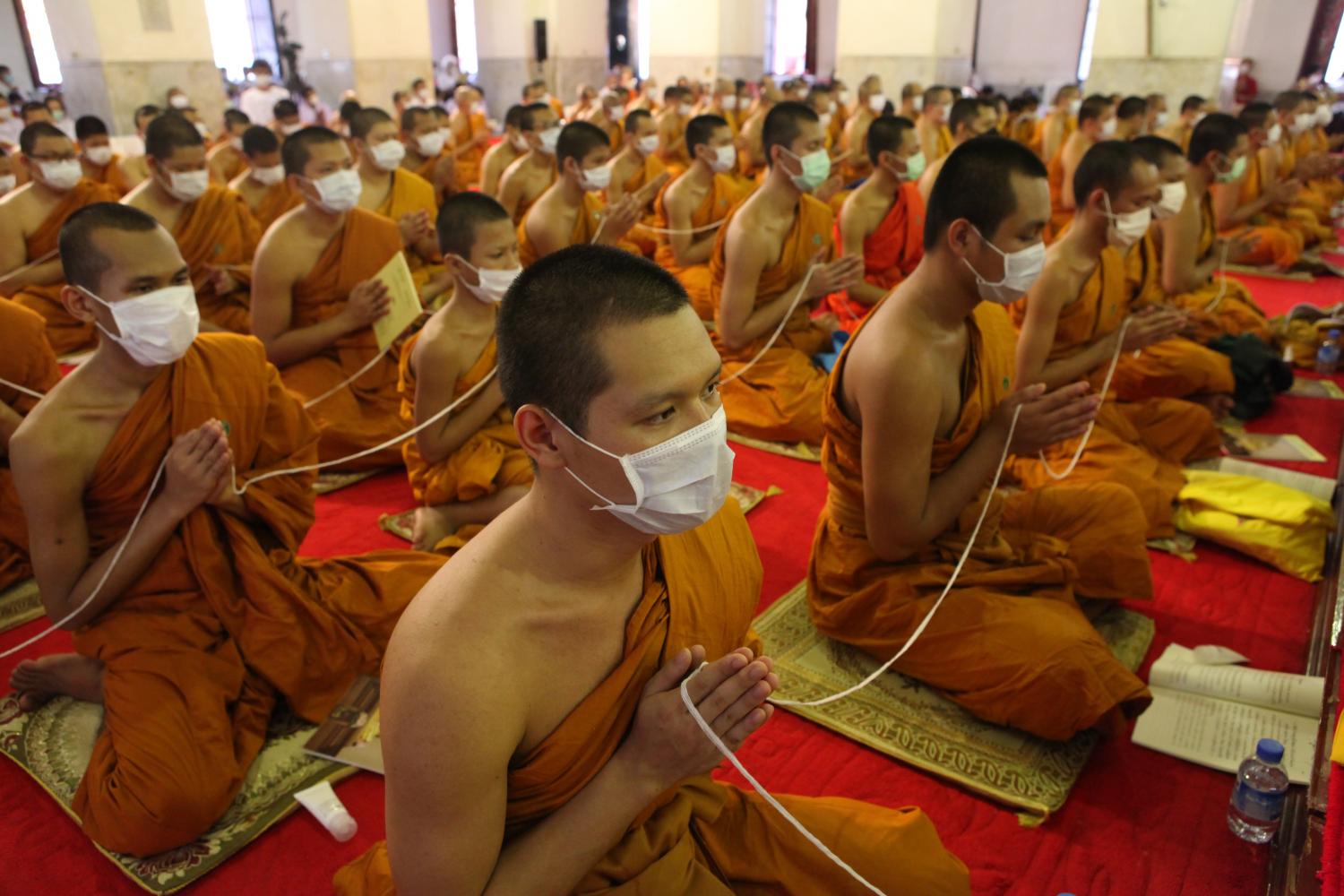
Doubts have been raised over the cause of death of a Thai man who was initially diagnosed with Covid-19.
The man, 35, is the subject of a Public Health Ministry probe as information on his symptoms contradicts evidence revealed by a specialist in new emerging diseases.
The man died of multi-organ failure on Saturday night although doctors had detected no coronavirus in his body since Feb 16, Disease Control Department chief Suwannachai Wattanayingcharoenchai said on Sunday.
He was among 42 people who were found to have contracted coronavirus following the viral outbreak in the central Chinese city of Wuhan in December.
The man had been first treated for dengue fever at a private hospital in late January before being transferred to the Bamrasnaradura Infectious Diseases Institute in Nonthaburi province because he had also contracted the Covid-19 virus, Dr Suwannachai said.
"His lungs had already deteriorated and other internal organs also worked too hard," the department chief said, referring to his condition before his death.
"We do not know exactly whether they [his symptoms] are [directly] related to Covid-19."
The death is being investigated by experts under the national committee on communicable diseases, Dr Suwannachai said.
However, his explanation con- tradicts information unveiled by Thiravat Hemachudha, head of King Chulalongkorn Memorial Hospital's Centre for Emerging Diseases.
The man had not had any other underlying diseases, Dr Thiravat posted on his Facebook page on Sunday. "His two lungs were affected by pneumonia, which shows he caught Covid-19 from the beginning, not dengue fever.
"I think the Public Health Ministry probably made some inaccurate assessment of the patient's conditions and diseases," he wrote.
A lab result found "he had dengue fever without detecting dengue virus". This led to a nurse at the hospital also contracting Covid-19 and subsequently suffering severe pneumonia, according to the post.
She has recovered, but the disease has severely damaged her lungs, Dr Thiravat said.
The man was a product consultant of a company which sells products at a duty-free shop run by King Power at its Srivaree branch in Samut Prakan's Bang Phli district.
Since he tested positive for the new coronavirus, other employees went through medical checks and the outlet was cleaned and has been closed due to a sharp drop in shoppers, King Power said on Sunday.
Meanwhile, doctors have detected no virus after testing a male bus driver who suffered severe flu symptoms for about a week, Dr Suwannachai said.
The man, who has tuberculosis, is currently being treated under close care, he said.
Health officials are keeping a close watch on three foreign air travellers after they were found with high temperatures upon their arrival at Thai airports last Friday, Transport Minister Saksayam Chidchob said on Sunday.
Until Feb 29, 2,953 people were kept under surveillance. Most of them had contracted influenza, Dr Suwannachai said, adding 1,748 have been discharged from hospital.
Officials also reported 30 of the 42 Covid-19-infected patients have recovered.
Sunday was the first day that new state measures against Covid-19 disease, now listed as a dangerous communicable disease, took effect.
This caused the Administrative Court to order its officials not to travel to 11 severely affected countries and territories.
However, despite the stronger efforts to curb the viral epidemic, Dr Thiravat said authorities have to do more by intensifying their screening of people suspected to catch the virus.
"Eighty per cent of Thai people who contracted the virus showed little or no symptoms but they can spread the disease," he wrote on his Facebook page.
The virus lodges deeply in the lower part of windpipe and lungs, so patients will not cough or have a sore throat when they first develop the disease.
This explains why tests on fluids taken from noses and throats often turn out negative, Dr Thiravat said.
Authorities fear anti-government rallies will hinder their efforts to control the spread of the disease.
Deputy Prime Minister and Public Health Minister Anutin Charnvirakul denied on his Facebook page on Sunday a report that he plans to ask the government to enforce the Internal Security Act to ban street demonstrations.
He said he respects rights to expression but needs to raise a warning against mass gatherings.
